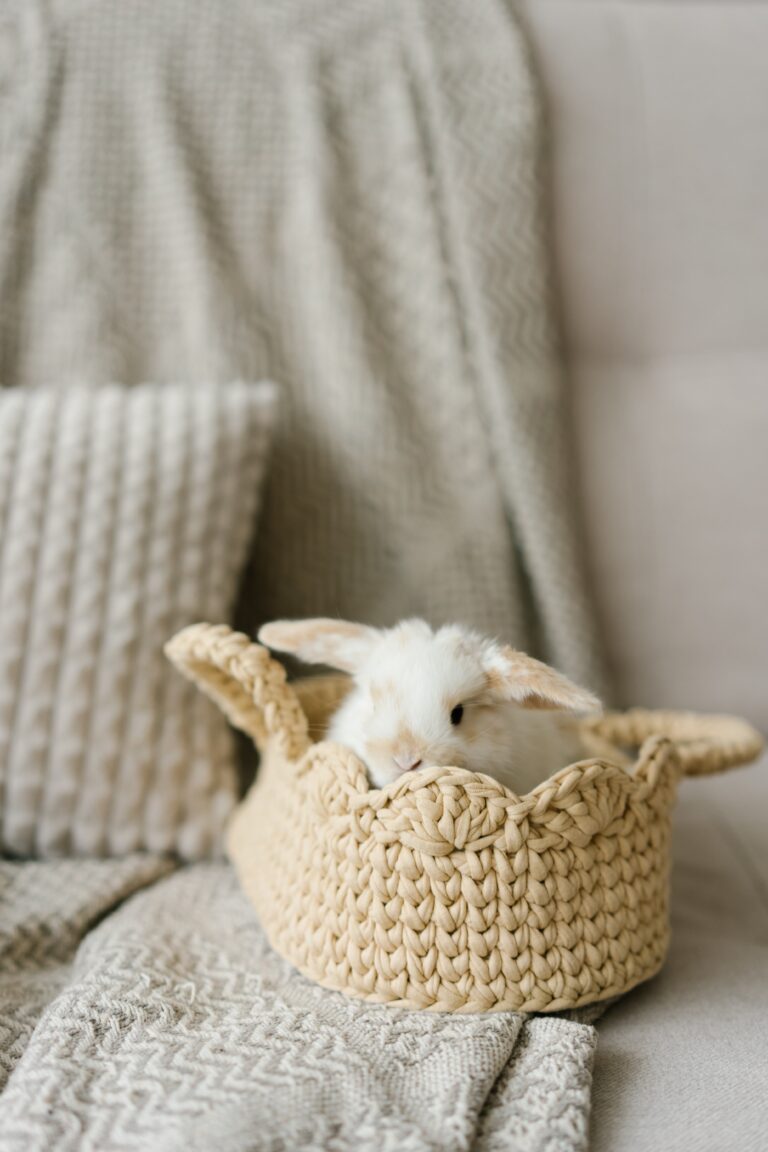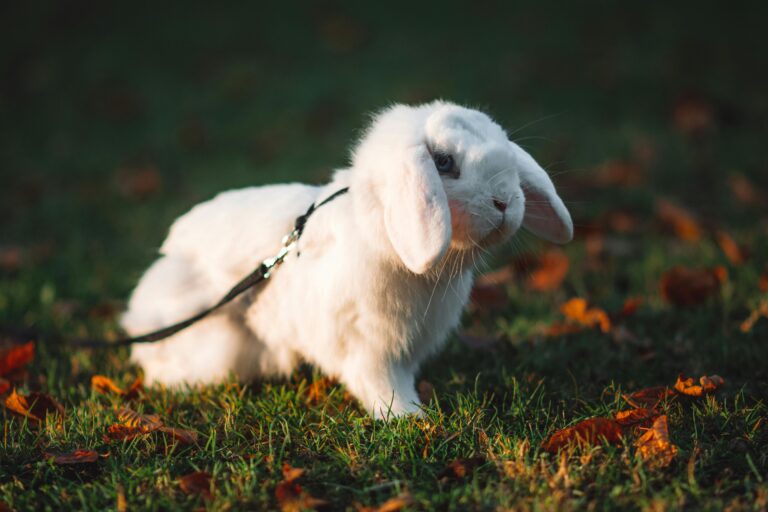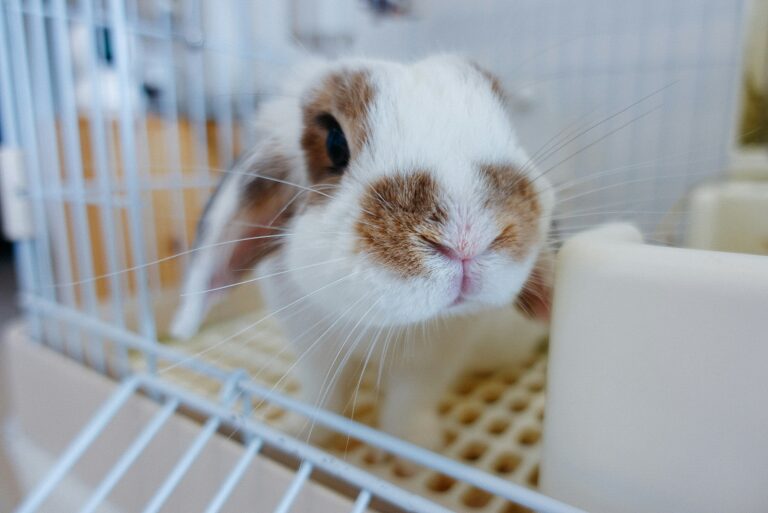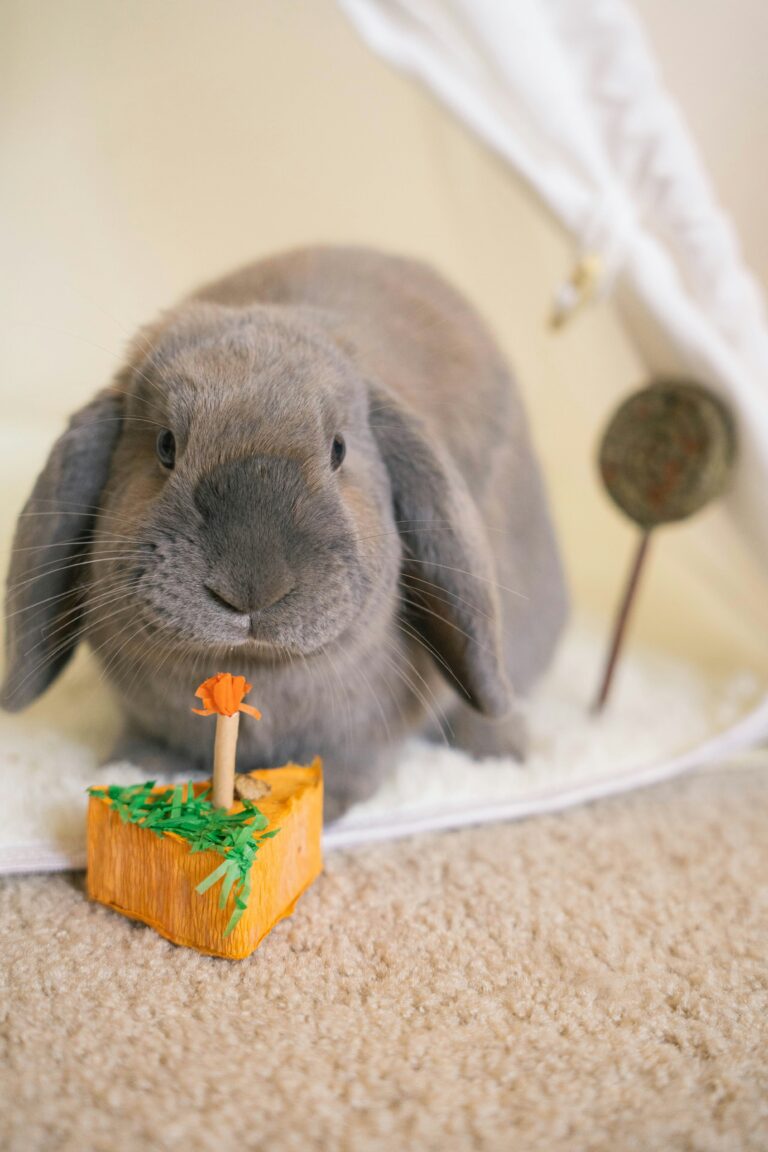Preparing for Bunny Babies: All About the Nest Box
Is your rabbit pregnant? Are you trying to learn more about preparing a nest box? If the answer is yes to either of these questions, this article is for you!
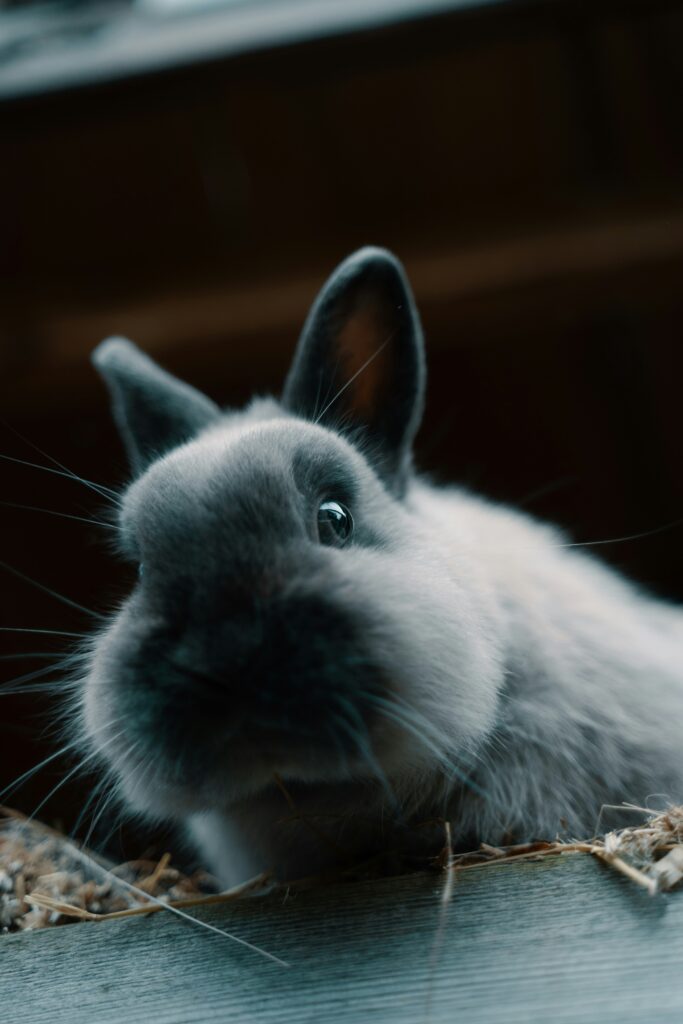
Around day 27 of your rabbit’s gestation, you should introduce them to their nest box! What exactly is that might you ask?
What is a nest box?
A nest box is a safe place for your rabbit to give birth! It is usually made of untreated hardwood or metal and is mostly enclosed but has a large enough entry point for the mother rabbit to be able to easily hop in and feed her babies. A good example of one can be found here on amazon (not an affiliate link, just posting for example).
Why does your rabbit need one?
Nest boxes are important because baby rabbits are born completely naked with their eyes and ears sealed. Because of this, their primary sense is thermosensation. Basically, this means that newborn rabbits will wander the cage, or enclosure, looking for the warmest spot.
Without a nest box, these kits will easily get lost and end up by themselves or accidentally escape the cage or enclosure. In either of these situations, kits will chill and likely die if not found quickly.
A nest box provides the kits with a safe place where they can cuddle together covered by hay and fur. When one of the kits inevitably begins exploring, they will not be able to get far from the rest of the litter, saving them from getting lost and dying from hypothermia.
When to Provide a Nest Box
The ideal time to provide a nest box is usually 27 days after breeding. We recommend this day because you want to give the nest box 1 day before your rabbit gives birth (kindles). Because gestation varies greatly between pregnancies and rabbits, your doe is most likely to have her kits between days 28 and 31 (sometimes even later!). It is always safest to err on the side of caution and provide the nest box before babies are expected!
Similarly, if you are not sure exactly when your rabbit was bred you can provide the box a few days early just in case. The downside to this is before nesting instincts kick in, rabbits think nest boxes are a really cool place to munch hay and poop! Because of this your rabbit may use hers as a litter box for a few days before the babies come, so it will have to be cleaned out regularly.
Nesting Materials
It’s not enough just to give your rabbit a nest box, she needs some nesting materials too! The best nesting material is hay, but in a pinch shredded paper will work too. Fill the nest box enough that the kits can both rest on and be covered in hay, but leave enough room for your rabbit to comfortably hop in.
Nesting Behavior
Nesting seems to usually go one of two ways. Either your rabbit will prepare her nest ahead of time, collecting nesting materials to build her nest and pulling heaps of fur to keep her babies warm, or she will wait until the ABSOLUTE LAST MOMENT to frantically build her nest. If your girl chooses to go down the latter path, you will likely go to sleep to an untouched nest box and wake up to a nest of warm and cozy kits!
When it Goes Wrong
Sometimes, especially with a new mother, your rabbit may just not know what to do. Or maybe the babies come so fast that she doesn’t have time to get them in the nest box. In instances where your rabbit delivers outside the nest box, collect them and gently place them inside. Also collect any nesting material or fur she has collected/pulled and cover the newborn kits.
If your rabbit hasn’t pulled any fur, gently place her on her back and help her out by gently plucking some of the fur from around her teats to cover her babies. If in a pinch, you can also try using dryer lint to line the nest and cover them!
Conclusion
Nest boxes are a nessesary part of breeding rabbits and the best way to keep your kits safe and warm! By providing your rabbit with a nest box with proper materials, you can do your best to ensure a happy, healthy litter of pets or showstoppers!
Want to learn more about raising rabbits? Check out our other articles How to Prepare for Bunny Babies and Responsible Rabbit Breeding: A Guide to Ethical Practices!

